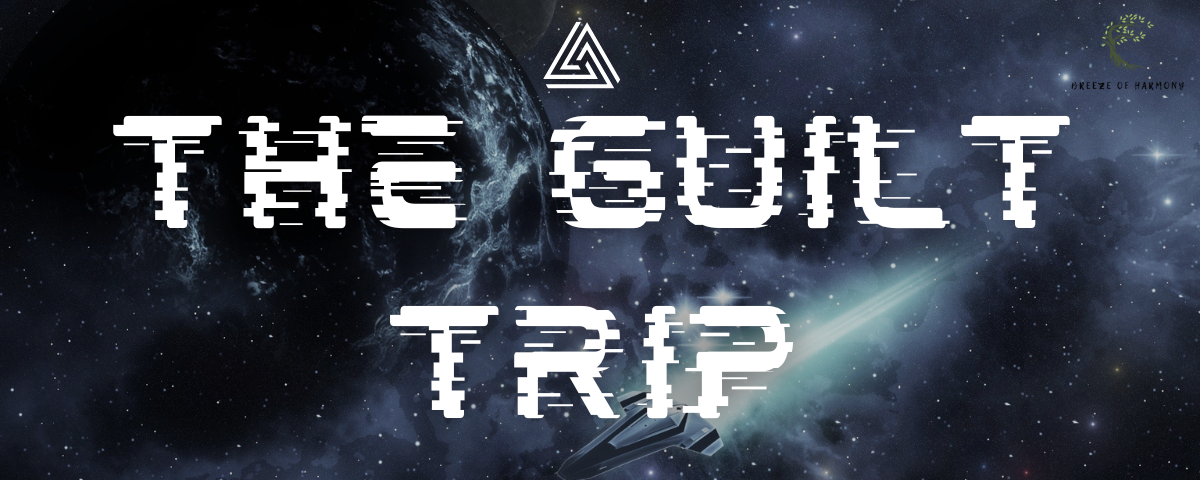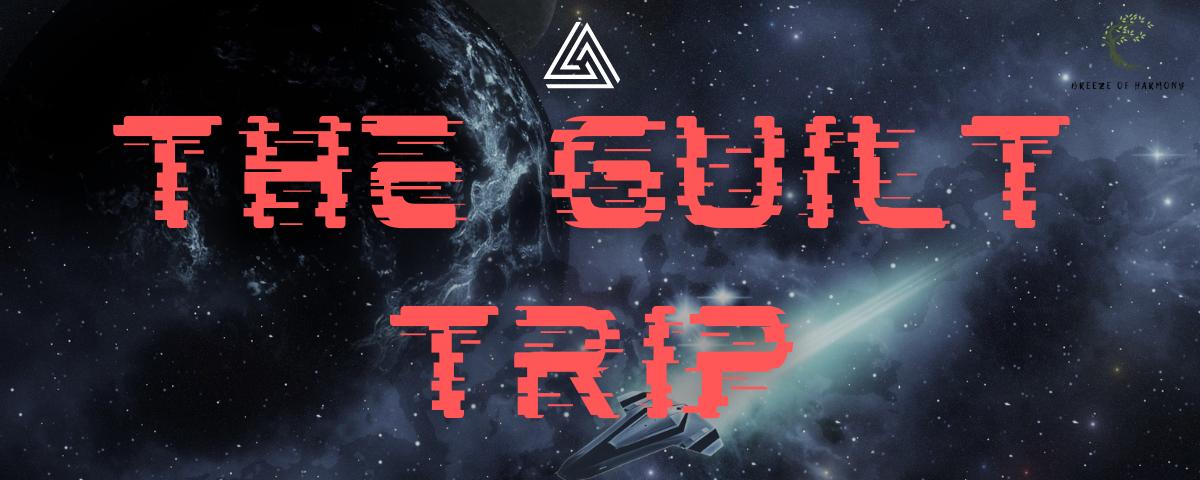“Have you ever done something out of guilt, even when it didn’t feel right? The Guilt trip is subtle yet powerful, often leaving us tangled in emotional manipulation. In this post, we’re diving deep into the world of guilt trips—what they are, how they work, and, most importantly, how to break free.”
Understanding The Guilt Trip: A Psychological Trap
What is a Guilt Trip?
- Definition: A guilt trip is a form of emotional manipulation that involves making someone feel guilty to achieve a certain outcome. It’s a category of Dark Psychology for Manipulation.
- Psychological Mechanisms: Explain how guilt taps into our innate desire to maintain relationships and avoid conflict.
- Historical Context: Briefly discuss the roots of guilt as a social control mechanism in families, societies, and institutions.
“Guilt is a rope that wears thin.” – Ayn Rand
Why Are The Guilt Trip So Effective?
- The Human Mind and Guilt: Describe how the brain reacts to guilt, mentioning the release of stress hormones and the impact on decision-making.
- Fear of Conflict and Rejection: Many people comply with guilt trips because they fear losing relationships or being viewed negatively.
“Guilt is perhaps the most painful companion to death.” – Coco Chanel
List of Common Guilt-Trip Scenarios
- Family members pressuring you into obligations
- Friends using past favors to manipulate
- Workplace scenarios where guilt is used to enforce extra tasks

The Anatomy of The Guilt Trip: How Dark Psychology Work
Recognizing the Signs
- Common Tactics: Explain how guilt trippers often exaggerate their own emotions, play the victim, or hint at sacrifices they made.
- Emotional Clues: Describe the feelings that arise, such as anxiety, self-doubt, and responsibility for others’ happiness.
“Guilt is a gift that keeps on giving.” – Erma Bombeck
The Guilt Trip “Scripts”
Classic Phrases of Guilt Trips
Provide examples like, “After all I’ve done for you…” or “I didn’t expect you to treat me like this.
Types of Guilt Trippers:
- The Martyr: Uses past sacrifices to manipulate.
- The Victim: Makes you feel responsible for their pain.
- The Indirect Manipulator: Drops hints to make you feel obligated.
List of Guilt Trip Behaviors to Watch Out For
- Frequent mention of personal sacrifices
- Emotional displays that seem exaggerated
- Passive-aggressive remarks

Why We Fall for Guilt Trips
The Role of Empathy and Social Conditioning
- Empathy and Guilt: Explain how empathetic people are especially susceptible to guilt trips.
- Cultural and Social Conditioning: Many cultures teach that putting others’ needs above our own is virtuous, making it easier to be manipulated.
“We are always more afraid to hurt others than to stand up for ourselves.” – Brené Brown
Common Psychological Needs
- The Need for Approval: Many people go along with guilt trips to feel accepted and valued.
- Fear of Abandonment: Explain how the fear of being alone often drives compliance with guilt-trippers.
Checklist: Are You Susceptible to Guilt Trips?
- Do you frequently feel responsible for others’ feelings?
- Do you avoid conflict even when it compromises your own needs?
- Are you often afraid of being “selfish”?
Recognizing When You’re Being Manipulated
Developing Emotional Awareness
- Identifying Guilt vs. True Responsibility: Help readers distinguish between healthy guilt (for genuine mistakes) and guilt imposed by others.
- Signs of Emotional Manipulation: Discuss red flags, such as feeling constantly anxious or guilty around certain people.
“The highest form of freedom is to be free from others’ expectations.” – Buddha
Self-Reflection Techniques
- Journaling for Clarity: Suggest journaling about situations where they feel guilt and analyze whether the guilt is self-imposed or manipulated.
- Mindfulness Practices: Encourage techniques that help identify emotions without judgment.
Types of Guilt Trips and How to Deal with Them
1. Family Guilt Trips
- Common Scenarios: Expectations around traditions, life choices, and time commitments.
- Strategies to Cope: Teach polite, assertive responses and boundaries.
“Don’t let someone else’s agenda rob you of your peace.”

2. Friend Guilt Trips
- Recognizing Manipulation Among Friends: Describe examples like pressuring someone to stay out late or constantly bringing up past favors.
- How to Set Boundaries: Offer techniques for being honest while maintaining friendship.
“True friendship is not about manipulation; it’s about mutual respect.”

3. Workplace Guilt Trips
- Guilt-Driven Overwork: Discuss situations where managers or coworkers guilt employees into extra work.
- Strategies to Protect Boundaries: Encourage respectful communication, setting boundaries, and knowing when to say no.

Setting Boundaries: The Key to Overcoming Guilt Trips
What Are Boundaries and Why Are They Important?
- Understanding Boundaries: Define personal boundaries and their importance in relationships.
- Psychological Benefits of Boundaries: Explain how boundaries create emotional safety and respect.
“Daring to set boundaries is about having the courage to love ourselves, even when we risk disappointing others.” – Brené Brown
Techniques for Setting Healthy Boundaries
- Communicating Clearly and Calmly: Provide examples of assertive yet respectful responses.
- Rehearsing Responses: Suggest role-playing or practicing responses to common guilt-trip scenarios.
- Remaining Firm Yet Compassionate: Emphasize that setting boundaries doesn’t mean being harsh; it means prioritizing one’s well-being.
Examples of Boundary Phrases:
- “I appreciate your perspective, but I need to take care of myself too.”
- “I understand you’re upset, but I need you to respect my decision.”

Practicing Self-Compassion to Resist Guilt Trips
What is Self-Compassion?
- The Importance of Self-Compassion in Resisting Manipulation: Explain how self-compassion strengthens our ability to say no and avoid manipulation.
“You, as much as anyone, deserve your own love and affection.” – Buddha
Exercises for Building Self-Compassion
- Self-Affirmation Techniques: Offer simple affirmations to reinforce self-worth.
- Meditation Practices: Suggest a short self-compassion meditation, focusing on breathing and releasing guilt.
List of Affirmations to Reinforce Self-Worth
- “I deserve to set boundaries.”
- “I am not responsible for others’ happiness.”
- “My needs are just as important as anyone else’s.”
Reclaiming Your Peace and Moving Forward
Embracing Self-Worth
- Living Free from Guilt-Based Manipulation: Encourage readers to embrace a guilt-free life, focusing on their needs and happiness.
“True peace comes from taking ownership of our own well-being.”
Building Supportive Relationships
- Surrounding Yourself with Respectful People: Encourage readers to seek out relationships where mutual respect and understanding prevail.
- Maintaining Assertiveness in New Relationships: Offer advice for establishing boundaries early on in new connections to avoid future guilt-tripping.
Practical Steps for a Guilt-Free Life
- Practice saying “no” without guilt.
- Regularly reflect on personal boundaries.
- Seek out supportive relationships.
Conclusion: Key Takeaways
- Recognize guilt trips and differentiate between genuine guilt and manipulated guilt.
- Empower Yourself to set boundaries without guilt or fear of judgment.
- Practice Self-Compassion to strengthen your sense of self-worth.
Final Thought:
“Remember, a healthy life is one where you honor your own needs and embrace relationships built on mutual respect. Reclaim your peace and live free from the weight of guilt trips.”




1 thought on “The Guilt Trip: Breaking Free and Reclaiming Your Peace”